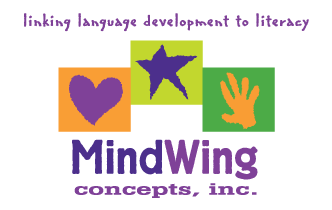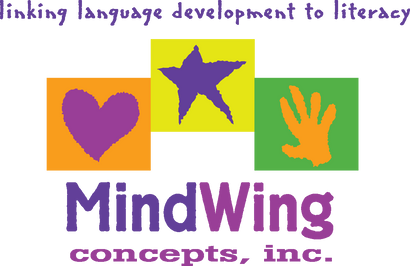Secure Checkout. FREE SHIPPING for Continental U.S. Orders over $60.
Menu
-
- Home
-
About Us
-
The Approach
-
Linking Language & Literacy
-
MindWing Learning
-
Learning Resources
-
SHOP
-
Blog
-
- About MindWing
- Our People
- Contact Us
- Your Account
- Login
-
United States (USD $)

Secure Checkout. FREE SHIPPING for Continental U.S. Orders over $60.
MindWing Concepts Blog

Tech Tuesday: “Woke” Stories, Using the Critical Thinking Triangle® with Current Events
December 22, 2020
 This fall I have had the great pleasure of working with a student who is very engaged in teletherapy and has a special interest in topics related to social justice. His “woke” nature has served him in keeping informed about the pandemic and stories related to the Black Lives Matter movement, but like many of our students, he can miss important elements of these narrative events. ASHA outlines that incorporating Client Values into treatment is an important component of Evidence-Based Practice (EBP). This is defined as “the unique set of personal and cultural circumstances, values, priorities, and expectations identified by your client and their caregivers.” This aspect, as well as the importance of engaging textual contexts and targeting narrative for students with ASD, led me to conduct a weekly current events activity through teletherapy for his sessions...
This fall I have had the great pleasure of working with a student who is very engaged in teletherapy and has a special interest in topics related to social justice. His “woke” nature has served him in keeping informed about the pandemic and stories related to the Black Lives Matter movement, but like many of our students, he can miss important elements of these narrative events. ASHA outlines that incorporating Client Values into treatment is an important component of Evidence-Based Practice (EBP). This is defined as “the unique set of personal and cultural circumstances, values, priorities, and expectations identified by your client and their caregivers.” This aspect, as well as the importance of engaging textual contexts and targeting narrative for students with ASD, led me to conduct a weekly current events activity through teletherapy for his sessions...

Building Comprehension and Expression with “’Twas The Night Before Christmas”
December 21, 2020 1 Comment
 Like most of you, many of our holiday traditions this year have been altered or cancelled, but one we can still count on in our house is reading the poem ’Twas The Night Before Christmas by Clement Clarke Moore. We have at our home some stunning versions of this famous poem in children’s picture book form. ’Twas The Night Before Christmas was first published with the title Account of a Visit From St. Nicholas almost 200 years ago, on December 23, 1823 in New York’s Troy Sentinel. It is this poem that gave rise to the image of Santa Claus we know and love in the United States and Canada; a jolly, round, old man with a white beard and red suit who drives a sleigh through the sky to bring gifts to children around the world on Christmas...
Like most of you, many of our holiday traditions this year have been altered or cancelled, but one we can still count on in our house is reading the poem ’Twas The Night Before Christmas by Clement Clarke Moore. We have at our home some stunning versions of this famous poem in children’s picture book form. ’Twas The Night Before Christmas was first published with the title Account of a Visit From St. Nicholas almost 200 years ago, on December 23, 1823 in New York’s Troy Sentinel. It is this poem that gave rise to the image of Santa Claus we know and love in the United States and Canada; a jolly, round, old man with a white beard and red suit who drives a sleigh through the sky to bring gifts to children around the world on Christmas...

Tech Tuesday: Gratitude is a Story
November 24, 2020
 The practice of gratitude is one that research suggests can be helpful psychologically all year round, so my hope is that this post will be useful to you in many days beyond Thanksgiving. However, when you think about it, gratitude is based in narrative, as a thought/emotion we have in response to life events. Culatta and Westby (2016), in a tutorial entitled “Telling Tales,” suggest that intervention to improve narrative language including emotional and theory of mind content should “focus on emotion and character traits that cross events.” For this and other reasons, particularly “in these difficult times,” we would do well to cultivate expressions of gratitude in interventions across the year and in varied contexts. Here are some resources to help you promote gratitude along with narrative and expository language...
The practice of gratitude is one that research suggests can be helpful psychologically all year round, so my hope is that this post will be useful to you in many days beyond Thanksgiving. However, when you think about it, gratitude is based in narrative, as a thought/emotion we have in response to life events. Culatta and Westby (2016), in a tutorial entitled “Telling Tales,” suggest that intervention to improve narrative language including emotional and theory of mind content should “focus on emotion and character traits that cross events.” For this and other reasons, particularly “in these difficult times,” we would do well to cultivate expressions of gratitude in interventions across the year and in varied contexts. Here are some resources to help you promote gratitude along with narrative and expository language...

Tech Tuesday: The Very COVID-Relevant SGM®
October 26, 2020
 As a (mostly entirely) telepracticing Speech-Language Pathologist during these weird times, I have found fostering narrative language in my students to be an even more critical intervention area than before. From providing opportunities to help students escape into stories, to helping them share their thoughts and feelings on school and home, current events and relationships, the Story Grammar Marker® has been an essential tool in therapy. In this post, I will describe some tech-based applications of SGM® for you to consider during the pandemic. Even with, and perhaps, because of the prevalence of remote learning, students are feeling isolated and likely having fewer opportunities to tell their stories and gain connections with others. In group therapy, we spend time letting conversation “breathe” and scaffolding connections. One way I have worked on this is to blend the new Conversation Paths product by Dr. Anna Vagin, CCC-SLP with Story Grammar Marker® Icons to tackle multiple narrative and social-cognitive goals. Conversation Paths is a pack of editable conversation-scaffolding visuals (PowerPoint) targeting the building blocks of conversation: “4 Starters” (initiation strategies), comments, questions, and others.
As a (mostly entirely) telepracticing Speech-Language Pathologist during these weird times, I have found fostering narrative language in my students to be an even more critical intervention area than before. From providing opportunities to help students escape into stories, to helping them share their thoughts and feelings on school and home, current events and relationships, the Story Grammar Marker® has been an essential tool in therapy. In this post, I will describe some tech-based applications of SGM® for you to consider during the pandemic. Even with, and perhaps, because of the prevalence of remote learning, students are feeling isolated and likely having fewer opportunities to tell their stories and gain connections with others. In group therapy, we spend time letting conversation “breathe” and scaffolding connections. One way I have worked on this is to blend the new Conversation Paths product by Dr. Anna Vagin, CCC-SLP with Story Grammar Marker® Icons to tackle multiple narrative and social-cognitive goals. Conversation Paths is a pack of editable conversation-scaffolding visuals (PowerPoint) targeting the building blocks of conversation: “4 Starters” (initiation strategies), comments, questions, and others.

Tech Tuesday: Using and Annotating MindWing’s Virtual Posters
September 28, 2020
 In this post, we’ll describe how to use MindWing’s NEW Virtual Posters product in distance learning sessions, and also how to annotate them for narrative scaffolding with students. The Virtual Posters provide a range of visuals that are easily added to Zoom or Microsoft Teams sessions (currently not Google Meet) and provide a reference for narrative/expository text and social pragmatics instruction. First of all, it is important to know how to add these visuals, which are JPEG image files, to platforms such as Zoom, in order to use them as virtual backgrounds during a session...
In this post, we’ll describe how to use MindWing’s NEW Virtual Posters product in distance learning sessions, and also how to annotate them for narrative scaffolding with students. The Virtual Posters provide a range of visuals that are easily added to Zoom or Microsoft Teams sessions (currently not Google Meet) and provide a reference for narrative/expository text and social pragmatics instruction. First of all, it is important to know how to add these visuals, which are JPEG image files, to platforms such as Zoom, in order to use them as virtual backgrounds during a session...

How to STILL Be Multi-Sensory During COVID19: Hygiene-Friendly and Remote-Friendly MindWing Products
September 11, 2020
 In the past couple of weeks, I have spoken with many friends and colleagues about the topic du jour: What does “back to school” look like for you and for your children? The answers range from full-time, in-class school days to full-time remote learning, to every other day in-person school with other days being remote, to weekly alternating student cohorts, to hybrid models, and more. While we, at MindWing, focus most of the time on the social-emotional, language and literacy aspects of these challenges, today we want to focus on the practical – using the Story Grammar Marker® Approach and related multi-sensory tools regardless of venue or platform...
In the past couple of weeks, I have spoken with many friends and colleagues about the topic du jour: What does “back to school” look like for you and for your children? The answers range from full-time, in-class school days to full-time remote learning, to every other day in-person school with other days being remote, to weekly alternating student cohorts, to hybrid models, and more. While we, at MindWing, focus most of the time on the social-emotional, language and literacy aspects of these challenges, today we want to focus on the practical – using the Story Grammar Marker® Approach and related multi-sensory tools regardless of venue or platform...
